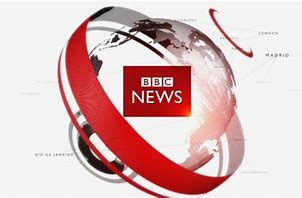- Get link
- X
- Other Apps
The British Broadcasting Corporation (BBC) is one of the world's oldest and most respected public service broadcasters. The organization's history spans nearly a century, and it has played a significant role in shaping British culture, politics, and society. In this blog, we will take a closer look at the history of the BBC, its evolution, and its working process, as well as the countries where it operates.
The BBC was founded in 1922 as a private company. At that time, it had just two radio stations, and its primary purpose was to provide information and entertainment to the British public. However, the BBC's role expanded significantly during the Second World War, when it became a crucial source of news and information for the British public.
After the war, the British government took control of the BBC, and it was transformed into a public service broadcaster. The organization's remit was to provide impartial news and information to the British public, as well as high-quality programming in a variety of genres.
The BBC continued to grow and expand over the years, adding new radio and television channels, as well as digital services. Today, the BBC is one of the world's largest broadcasters, with a global audience of millions of people.
Evolution of the BBC
Over the years, the BBC has evolved in many ways. For example, it has embraced new technologies, such as digital broadcasting, streaming, and podcasting. It has also expanded its coverage to include a wide range of genres and formats, from news and current affairs to drama, comedy, and documentaries.
The BBC has also faced significant challenges over the years. For example, it has been criticized for being biased in its coverage of political events, and for failing to represent the views of all segments of British society. However, the BBC has worked hard to address these issues and to ensure that its programming reflects the diversity of the British public.
Working process of the BBC
The BBC operates as a public service broadcaster, which means that it is funded by the British public through a license fee. This fee is used to pay for the BBC's programming and services, and it allows the organization to operate independently of government and commercial interests.
The BBC is overseen by a board of governors, who are responsible for setting the organization's strategic direction and ensuring that it operates in the public interest. The board is made up of representatives from a range of sectors, including business, politics, and the arts.
The BBC's programming is produced by a large team of journalists, producers, and presenters, who work across a range of platforms, including radio, television, and online. The organization has a rigorous editorial process, which ensures that its programming is accurate, impartial, and of high quality.
Countries where the BBC operates
The BBC is primarily a British broadcaster, but it also operates in many other countries around the world. The organization has a significant international presence, with offices and studios in a range of countries, including the United States, Australia, India, and China.
In conclusion, the BBC is an important and influential public service broadcaster that has played a significant role in shaping British culture and society. Over the years, it has evolved and adapted to changes in technology and society, while maintaining its commitment to providing high-quality programming that is impartial and reflective of the diversity of the British public. The BBC's international presence is also significant, and its services are valued by millions of people around the world.
V
Countries where the BBC operates
Evolution of the BBC
Famous Names Associated with the BBC
History of the BBC
Working Process of the BBC
- Get link
- X
- Other Apps


Comments
Post a Comment